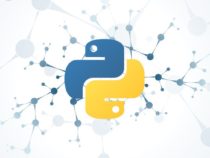-

How to access keyboard inputs/key presses in your Unity game
Many games will need to receive keyboard inputs for their game to function correctly. Whether it is to shoot or create movement or even special abilities, Unity game engine makes it quite simple for us to accomplish this. The Input class makes this a rather simple process. The Unity documentation page for keycode has all
Read More… -

How to load a new level/scene in Unity
In Unity game engine, unless you are making a single level arcade game, there will be times where you will need to load a different level to your game. In the above code, the new scene is loaded synchronously using the scene manager. If the new scene is complex, this loading process could take a
Read More… -

How to create framerate independent movement in Unity
Due to the fact that scenes might run at different frame rates due to complexity of the level, you don’t want your game to work differently during different scenes. One way to handle movements in Unity game engine is by taking into account the time of change as movement is taken into account. By using
Read More… -

How to implement a Queue in Python
A queue is a data structure commonly found in software engineering. Let’s take some time to try to implement our own queue class in Python. Queues work via First In First Out(FIFO) principals. What that means is that the sooner an item is added to a list, the sooner that the item will be available
Read More… -

Const, Let, and Var
In ES6 and beyond, Javascript will give us 3 options for creating variables. The 3 options are Const, Let, and Var. Var has been around as long as Javascript whereas Let and Const are newly available via ES6. Var variables are created with functional scope and this can cause a lot of problems in your
Read More… -

Checking Equality In Javascript
One of the most common things that come up in programming is checking equality between objects or variables. In javascript there are two ways of checking equality, == and ===. They are actually very different things. So it’s good to know the difference between them. == checks that two objects have the same value, but
Read More… -

How To Load Data With Python And Pandas
Load Data With Pandas Pandas is one of the most popular data manipulation libraries in python, so in this post, let’s take a look at the most common ways to load data into a pandas dataframe. Load CSV First up, let’s try loading data from a csv. Loading data from a csv is probably
Read More… -

Intro To Matrices With Python And Numpy
Matrices With Numpy Numpy is really good at working with matrix mathematics, and matrix math is everywhere in data science. It will save you a lot of time if you get acquainted with the numpy library. Okay, without further ado, let’s get started by importing numpy and creating a sample matrix to work with.
Read More… -

How To Create Vectors And Matrices With Numpy
Numpy Vectors And Matrices Numpy vectors and matrices will show up all the time in data science and machine learning. So, let’s take a look at how to create them. Let’s first import numpy. import numpy as np Next, let’s try to create our first vector row. np.array([1,2,3,4]) # array([1, 2, 3, 4]) Wasn’t
Read More… -

How To Add/Subtract With Numpy Matrices
Adding/Subtracting With Matrices Adding and subtracting matrices is a fundamental part of linear algebra and a lot of data science techniques. Let’s take a look at how to add/subtract with numpy arrays and matrices. First, let’s import numpy and create some matrices to practice our operations with. import numpy as np a = np.array([[1,2,3,4],[5,6,7,8],[9,10,11,12],[13,14,15,16]])
Read More…

Recent Comments